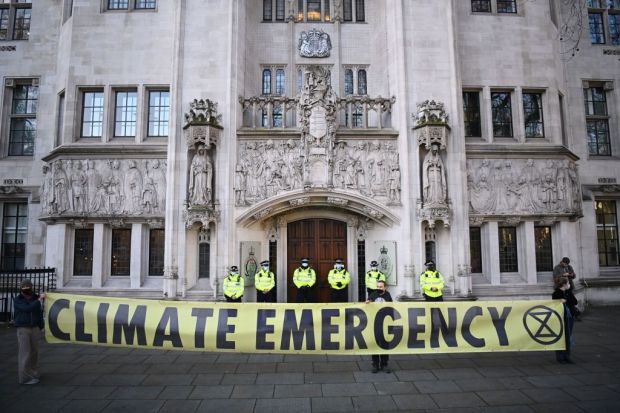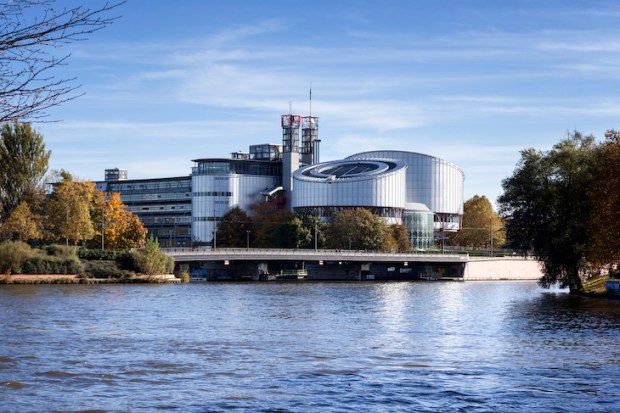A couple of weeks ago Ursula von der Leyen portentously announced a further package of EU sanctions against Russia – the sixth, in case you had lost count. No doubt an underling immediately told Vladimir Putin. Most likely, that adviser will have been waved away; Vladimir has more important matters to think about.
Much of the announcement was small beer. Putin won’t be shaking in his shoes at the thought that a few more of his top brass are being sanctioned, the odd bank removed from Swift, three broadcasters silenced in the EU, and a bar on the EU supply of corporate services like accountancy to Russian companies. True, there were two more serious-looking proposals: a ban on European shipowners carrying Russian oil, and a prohibition on the import of the stuff into Europe. But neither look that credible. Greece, Cyprus and Malta are major EU shipowning nations: their governments quickly lobbied to make sure the shipping proposals were dropped.
The proposals for an oil embargo, which if imposed immediately might have created a headache for the Kremlin (oil being a good deal more lucrative to it than gas), were very much delayed action. No ban at all would apply for six months, by which time the Ukraine war might well be over anyway; Czechia and Slovakia would have got two years to phase out imports, and Hungary two-and-a-half. And even this mild proposal, according to the latest accounts, is unlikely to take effect. Hungary, almost oilless, landlocked and dependent on pipelines for supply, argues that it would take at least four to five years to change its delivery arrangements, and says – with some justification – that its people cannot be asked to deal a hammer-blow to the Hungarian economy and their jobs by eschewing Russian oil in the meantime.
As if this was not enough, there have now been two further developments. In an effort to defeat financial sanctions by creating a demand for the rouble, Russia has threatened to cut off oil and gas supplies unless paid in the Russian currency. Having at first stood firm against this exercise in fiscal blackmail, it seems Brussels has now caved. It has given a nod and a wink to member states that paying Russia for fuel using foreign currency accounts at the Russian Gazprombank, which would essentially give Russia what it wants, would not amount to sanctions-busting under its existing laws.
Meanwhile, there are also interesting stirrings in Germany. Once almost obsessive in avoiding anything that would provoke Russia, Chancellor Scholz has now been shamed into spectacular action the other way. He has already quietly reduced Germany’s dependence on Russian oil; now he has suggested that by the end of the year he will follow Poland’s principled example and ban it entirely, whatever the EU says or does.
What conclusions can we draw from all this? Two come to mind. One is that, for all its bombast, and its aspiration to be a powerful and decisive player on the world economic stage, when it comes to effective concerted action the EU is a broken reed. As the case of Russia shows, it seems unable to impose any kind of decisive commercial pressure even against a country that by common consent is in the wrong and whose actions have made it a pariah in the eyes of most countries.
Not that this should this surprise anyone. For one thing, however much Brussels may claim to act as a trading bloc in its own right, it is to a large extent bankrolled by Germany to the tune of (conservatively) €30 billion a year. In practice, this makes the bloc Germany writ large, or at least means that no major decision of economic import can be taken without Berlin’s acquiescence. For another, since its expansion into eastern Europe, the EU now comprises a very varied collection of economies and political structures. Many post-2000 joiners do not share the same economic interests as the older western members; furthermore, many also retain unpleasant memories of being bullied by outside states. They therefore have a healthy respect for their own national public opinion and correspondingly less truck with the idea that national differences need suppressing in the interests of a uniform EU position.
The second big conclusion is that when it comes to Ukraine, Brussels is an increasingly embarrassing irrelevance. Put bluntly, what has it actually done to help Ukraine on the ground? Apart from the odd cash grant and the abandonment of some customs duties against Ukrainian produce, the answer is very little. Of course there have been words of condemnation, grandstanding visits from EU dignitaries, and murmurings about EU membership. But even if these sound good they don’t impress the Kremlin and they won’t drive a single Russian soldier a yard further from Ukrainian territory.
In the European context, the running has patently been made entirely by two other entities. One is the member states. Apart from Hungary with its maverick neutral stance, think Poland, Lithuania and more recently Germany, all of whom have effectively abandoned Brussels and said they will set their own Russia policy. The other is Nato. Its active members have done the serious heavy lifting when it comes to arming Ukraine, giving it support and where necessary discreet intelligence. It may well be this, as much as a feeling that Russia must be contained, that has tipped Sweden and Finland – the only EU non-members of Nato with any military pretensions – into applying to join. Previously they might have felt, in common with much liberal opinion, that the EU was the rising power to align with. But now that they have seen what the EU is not doing, who can blame them for wanting to join the one organisation that seems to be doing some good?
Got something to add? Join the discussion and comment below.
Get 10 issues for just $10
Subscribe to The Spectator Australia today for the next 10 magazine issues, plus full online access, for just $10.


















Comments
Don't miss out
Join the conversation with other Spectator Australia readers. Subscribe to leave a comment.
SUBSCRIBEAlready a subscriber? Log in